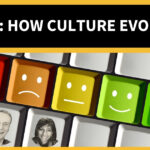Building Bridges: How to Talk to Trump Supporters
In the wake of the Trump election, many progressives are realizing that one way forward is to...
Read MoreSelect Page
Posted by Jeff Salzman | Oct 26, 2017 | podcast
In the wake of the Trump election, many progressives are realizing that one way forward is to...
Read MorePosted by Jeff Salzman | Oct 25, 2017 | podcast
In this segment I review my new favorite horror film: “The Witch: A New England Folktale”. Created...
Read MorePosted by Jeff Salzman | Oct 23, 2017 | podcast
In a political system that is so polarized and seemingly rife with conflict between irreconcilable...
Read MorePosted by Jeff Salzman | Oct 18, 2017 | default, Favorites, podcast
In this episode I review the movie “Dunkirk”, a wonderful new film by Christopher Nolan which I offer for consideration as a work of lntegral art.
As I say in the podcast (and accompanying transcript), “Dunkirk” expresses traditional values in a postmodern voice. The resulting integration is both cool and drenched with meaning. The effect is that we lower our guard to become directly vulnerable to the predicament of the soldiers fighting the battle onscreen.
I was thrilled by the movie and left feeling enlarged, as if I had experienced not just the suffering and heroism of the characters, but the suffering and heroism of humanity. Thus inspired, I offer this review to propose that “Dunkirk” achieves and transmits an emergent, post postmodern aesthetic. And to encourage you to see it!
Read MorePosted by Jeff Salzman | Oct 18, 2017 | podcast
In this segment I respond to a listener who makes a urgent request for relief from a bad case of...
Read MorePosted by Jeff Salzman | Oct 17, 2017 | podcast
If Buddhism is a religion of peace, what explains the ethnic cleansing in Myanmar, where the...
Read MorePosted by Jeff Salzman | Oct 16, 2017 | podcast
The Transpersonal Workout — I think I have stumbled upon a way to transform my morning...
Read MorePosted by Jeff Salzman | Oct 11, 2017 | podcast
Male domination of women is nothing new. Though modernity and postmodernity seek to dismantled it,...
Read MorePosted by Jeff Salzman | Oct 10, 2017 | podcast
In the wake of the Trump election, many progressives are realizing that one way forward is to...
Read MorePosted by Jeff Salzman | Oct 9, 2017 | default
The Las Vegas shooter highlights the price of America’s second amendment: high-tech guns in the...
Read MorePosted by Jeff Salzman | Oct 4, 2017 | default, podcast
Hey Folks,
Today I’d like to share a conversation I had with one of my favorite evolutionary teachers, Patricia Albere, about her beautiful new book: Evolutionary Relationships: Unleashing the Power of Mutual Awakening.
Patricia is the founder of The Evolutionary Collective, a group of committed integral practitioners who are investigating relationship itself as a means of spiritual awakening.
I hosted Patricia as she started the Collective several years ago at Boulder Integral. I loved working with her; Patricia has a special, right-on-schedule realization, and the gift of real spiritual leadership in sharing it with others. Here’s the blurb I wrote for her book:
“Patricia Albere has been conducting basic research into what it is to evolve in mutuality with other people. This book is a report from the frontiers of her explorations. What she has discovered is that love is not just an emotion but an evolutionary force, a force that drives all the fragments of the universe – including us – toward greater connection and wholeness.”
You can find out more about Patricia’s new book Evolutionary Relationships here. And if you are seriously interested in the practice of mutual awakening, consider buying the book by Sunday, 10/8/17 and you’ll get complimentary tuition to her four-part course, Mutual Trust.
Read MorePosted by Jeff Salzman | Oct 2, 2017 | default, Favorites, podcast
In this episode I attempt once again to plumb the shallows of Donald Trump’s mind.
I was spurred by an article in The Atlantic magazine about children who have been diagnosed with “callous and unempathetic traits.” In many ways Trump fits the profile of these children, who to a surprising degree do not respond to disapproval or punishments, but do respond to praise and rewards. The article reports on interesting new treatments that are helping these kids grow into better adults.
Unfortunately, at age 71 Trump may be a lost cause. In the last part of the podcast I look at some of the ramifications of his psychological profile, specifically as it relates to North Korea.
Read MorePosted by Jeff Salzman | Sep 29, 2017 | podcast
If God didn’t want us to eat animals, why did He make them out of meat? VIDEO AUDIO ONLY Podcast:...
Read MorePosted by Jeff Salzman | Sep 28, 2017 | podcast
How much consciousness do animals possess?...
Read MorePosted by Jeff Salzman | Sep 17, 2017 | podcast
Rivers are people, my friend. And they’ve lawyered up. VIDEO AUDIO ONLY Podcast:...
Read MorePosted by Jeff Salzman | Sep 15, 2017 | podcast
This week the topic was obvious: Hurricanes Harvey and Irma, the dual storms that battered Texas and Florida in the last couple weeks.
In this episode we look at how the climate debate has exacerbated the polarization of our culture, particularly between traditionalists and postmodernists. How is it that the political right and left can have such radically different views of what’s happening with our global climate, and what, if anything, should be done about it? Are we deadlocked? Can we fight our way forward? And why can’t science just settle things?
As always integral theory helps us sort things out. I hope you enjoy the podcast!
Read MorePosted by Jeff Salzman | Sep 11, 2017 | default, podcast
In today’s episode I am the guest of Stephen T. Harper as he kicks off his new podcast, “What’s Your Theory?”, where he interviews people who have “good answers to big questions about how the world works.” And do I have a theory for him!
One of the key tenets of integral theory is that human consciousness and culture evolve, and that’s where Steve and I focus. With his enthusiastic curiosity and flex-flow mind, Steve helps me map the “evolution of the interior” from the dawn of humanity to the present day where integral theory is so helpful for making sense of our world.
While this podcast is an introduction to integral theory, we use plenty of up-to-the minute topics and headlines to tell the story. Established students of integral theory will get an overview and refresher, and newbies will get a good basic understanding of a foundational integral principle. If you have friends who are interested in an integral on-ramp, this is a conversation you might consider sharing with them as well.
Read MorePosted by Jeff Salzman | Jun 26, 2017 | default, podcast
In this podcast we’ve spliced together the audio from three Facebook Live videos I’ve done over the last couple weeks. I’m really liking these quickie videos as they are giving me a chance to comment on current events in real time, which is particularly handy now that the news is coming at us so fast.
Here are the three topics I explore in this podcast:
02:36 Trump is Irredeemably Red
19:18 Loyalty vs Law
37:53 The Uncivil War
Read MorePosted by Jeff Salzman | Jun 16, 2017 | default, podcast
In this podcast, Beena and I discuss what she and her team are learning about how adults grow through the predictable stages of adult development while still remaining true to their own journey. We examine how we can consciously participate in our own evolution and growth in a way that creates a more fulfilling, healthy, conscious and fruitful life.
Read MorePosted by Jeff Salzman | Jun 8, 2017 | default, Favorites, podcast
In this episode I am the guest of my longtime friend and integral comrade, Jason Lange, on his new...
Read MorePosted by Jeff Salzman | May 6, 2017 | default, podcast
Diane Musho Hamilton is at the forefront of one of the most significant spiritual emergents in contemporary culture: the realization of the power of our everyday relationships, even troubled ones, as a means of awakening.
For many progressive spiritual practitioners it no longer feels like enough to merely follow an individual meditation practice, as valuable as that is. We want to apply our enlarged selves, skillfully and in real time, to the circumstances of our complex lives, and particularly to our relationships with others.
The spiritual potency of relationship is a subject Diane Musho Hamilton explores in her new book, The Zen of You and Me: A Guide to Getting Along with Just About Anyone. Diane grounds her teaching in the enduring cosmic polarity between difference and sameness. It is the sameness we share with others that provides comfort and safety, and the differences we have with them that bring liveliness and creativity. As integralists we are called to integrate these polarities into a deeper mutuality.
Diane’s approach is particularly relevant to the contemporary social challenge of relating to our American family as it continues to polarize both culturally and politically.
I always feel a little bit wiser after a conversation with my dear friend Diane. I hope you do too!
Read MorePosted by Jeff Salzman | Apr 4, 2017 | Favorites, podcast, The Shrink & The Pundit
Life is wounding. For some of us our wounds are inflicted in the form of major traumas such as a serious injury, painful divorce, career failure or act of abuse or violence. More often, however, we are merely called on to suffer the slings and arrows of everyday life, which can also leave their mark.
Contemporary psychology has revealed two major insights into trauma. One is that trauma is pervasive: two-thirds of Americans report experiencing a major trauma in their lives. The other is that trauma is toxic, often kicking off lifetime patterns of depression, anxiety and addiction. One study showed that people who suffer six or more of ten different categories of adverse events lived on average twenty years less that people who had had experienced none of those categories of adverse events.
Whether large or little, some trauma is inevitable and necessary for healthy development. Shocks and setbacks shape who we are and can provide the opportunity to develop resilience and a larger perspective.
Read MorePosted by Jeff Salzman | Mar 20, 2017 | default, Favorites, podcast
In this podcast I ask Integral philosopher Steve McIntosh a question on the mind of many integral practitioners: how do we relate to the nationalist passions that are arising in many developed countries around the globe?
Nationalism is often expressed as “love it or leave it” nativism, or in the case of the election of Donald Trump as a promise to take America back to an era of perceived past greatness.
On the other hand many Green-stage postmodernists reject patriotism entirely. As Steve says, “it is like nails on a chalkboard for people of postmodern consciousness to contemplate the good that America has done in its history.”
Read MorePosted by Jeff Salzman | Mar 10, 2017 | default, podcast
Steve Bannon is Donald Trump’s favorite philosopher. Trump sometimes jokes that he doesn’t know “whether Bannon is alt-right or alt-left,” but either way Bannon has given voice to the visceral impulse of populist nationalism that Donald Trump has expressed for decades.
So what does Bannon believe? A pillar of his worldview is contained in a school of history called Strauss-Howe generational theory, developed by William Strauss and Neil Howe, which states that human events can be loosely organized in terms of recurring eighty year cycles, or saecula, which unfold in four twenty year turnings.
Read More




Join the Daily Evolver newsletter to get new podcasts sent straight to your email.
